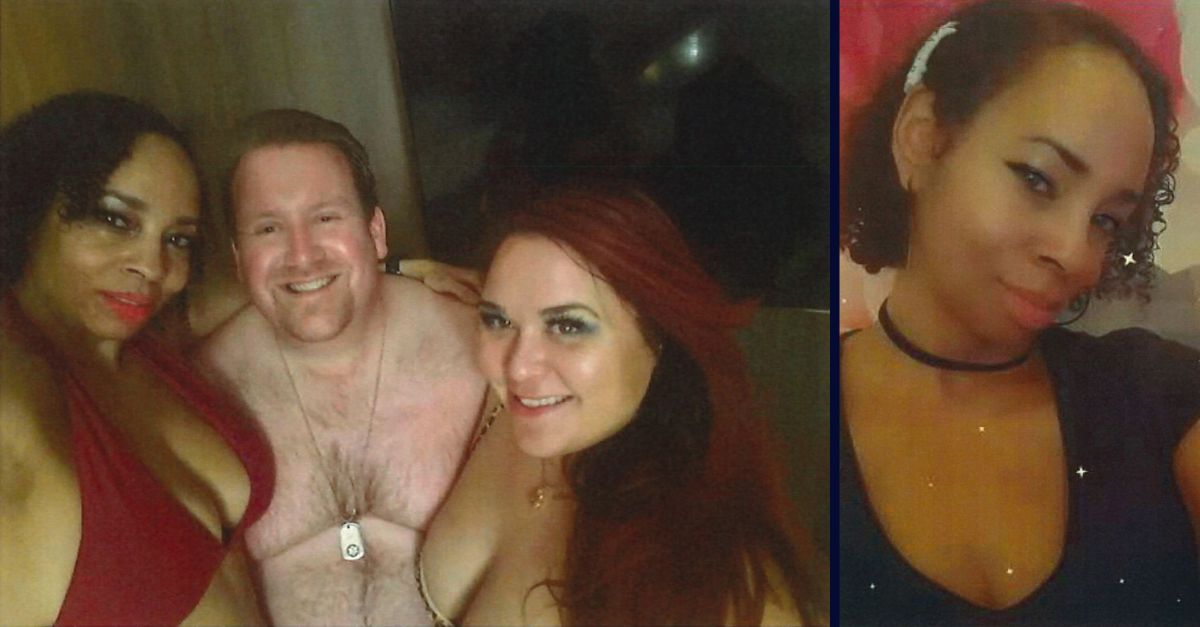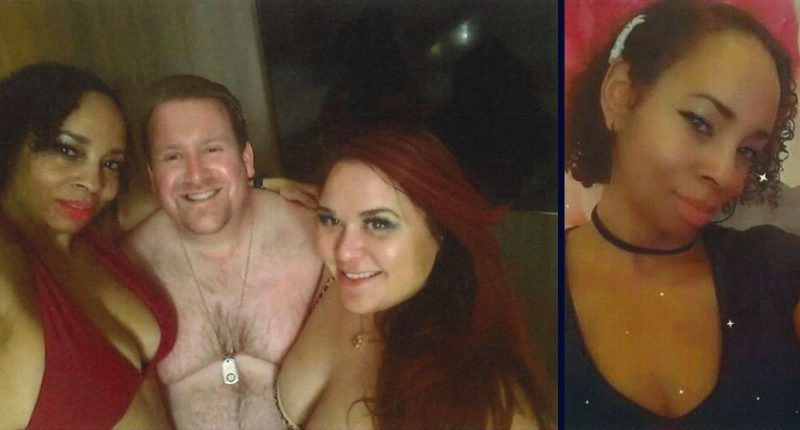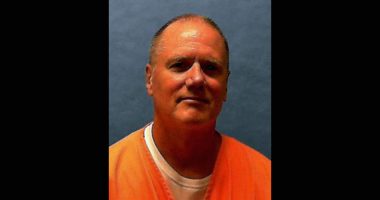
Left: Clark County District Court Judge Erika Ballou appears in an image with two public defenders (Nevada Commission on Judicial Discipline). Right: Ballou appears in a selfie (Nevada Commission on Judicial Discipline).
A Nevada judge famous for posing in hot tub selfies with public defenders is facing judicial discipline once again — this time for allegedly ignoring orders issued by the Silver State’s supreme court.
Clark County District Court Judge Erika Ballou is named in a formal statement of charges filed on April 24. The 11-page document alleges the Las Vegas area jurist committed six ethical violations when she repeatedly interjected herself — and her court — into various cases by issuing legally suspect rulings in favor of a criminal defendant.
Each of those disputed cases concerned Mia Christman, 31, who committed violent crimes during a spree some 12 years ago. She pleaded guilty and was sentenced to a minimum of 10 years behind bars. On appeal, Ballou issued several rulings in Christman’s favor.
“Throughout her involvement in the Christman cases, Judge Ballou exhibited a pattern of conduct that demonstrated a clear bias in favor of Christman and against the State,” the charging document reads. “This bias was evidenced through a combination of actions, omissions, and on-the-record statements that, taken together, reflect a departure from the standard of impartiality required of a Nevada judicial officer.”
In 2021, acting on a petition for a writ of habeas corpus, Ballou determined Christman received ineffective assistance of counsel during sentencing and ordered her to be released from prison. Prosecutors pushed back. In 2022, the Nevada Supreme Court reversed the district court, ruling that Christman had not received ineffective counsel and remanded the case to Ballou with, as is typical, orders to fashion a new ruling in line with what the high court found.
The judge, however, refused to oblige, according to the statement of charges filed by the commission’s special counsel. Instead, the court sought to relitigate the merits of Christman’s habeas claim.
“For months, the State repeatedly objected to Judge Ballou scheduling a new evidentiary hearing on the ineffective-assistance-of-counsel claim,” the filing goes on. “The State also requested that Judge Ballou enter judgment in favor of the State and remand Christman into custody pursuant to the Supreme Court’s order of reversal and mandate on remand. Judge Ballou refused to grant the State’s requests despite that order and mandate.”
Eventually, the state lost patience with this process and filed for mandamus relief directly with the Nevada Supreme Court.
A mandamus petition is not exactly an appeal. It is, rather, an attempt to have one court force another entity within the government to do something, or to force itself to correct a mistake.
Prosecutors asked the Nevada Supreme Court to vacate a scheduled hearing on the ineffective-assistance-of-counsel claim, enter judgment in favor of the state, and send Christman back to prison.
In late 2023, the state Supreme Court found Ballou had violated their earlier order and directed her to comply. But, the commission alleges, Ballou “continued to fail to immediately enter judgment in favor of the State and to remand Christman into custody.”
In early 2024, prosecutors filed a motion to enforce the high court’s orders. Then, the state also moved to have Ballou recused from Christman’s underlying case, which the defendant quickly opposed with a motion to strike the recusal motion.
More Law&Crime coverage: ‘Lent the prestige of her office’: Judge charged with advancing ‘private interest’ and using judicial power to ridicule people, complaint says
Ballou, in turn, granted Christman’s motion. Then, she signed off on another defense motion to modify the prison sentence.
The Supreme Court, in response to the state’s motion to enforce, rejected that requested relief, but used the state’s arguments to directly divest Ballou of jurisdiction over the Christman case.
The matter was sent to a different district judge who promptly entered judgment for the state. By May of last year, Christman was returned to prison, as Law&Crime previously reported.
The defendant had already served six years of a 1o-year sentence when Ballou began to intervene in her cases.
“It felt like somebody took a chance on me,” Christman told Las Vegas-based CBS affiliate KLAS, referring to the judge’s efforts.
That chance could now have professional repercussions.
“Judge Ballou’s actions constitute either a violation of the Code that was knowing and deliberate or a violation that was not knowing and deliberate,” the statement of charges alleges. “Both types of violations are contrary to the form, force and effect of the Code.”
Judicial ethics investigators are not, at least at this stage, asking for any particular kind of discipline. Such punishment, if any, will be up to judicial ethics officials themselves, but nothing new for Ballou.
Love true crime? Sign up for our newsletter, The Law&Crime Docket, to get the latest real-life crime stories delivered right to your inbox.
In January 2024, ethics investigators took aim at the judge over the aforementioned hot tub selfie, a late-night Instagram post about attending a Billie Eilish concert containing a hashtag about dismissing cases lacking in-custody defendants, and in-court comments critical of police officers in the context of the Black American experience.
In the post featuring a picture of herself in a hot tub with two other attorneys, two women wear bikini tops while the man is shirtless. The post is captioned: “Robson is surrounded by great t–.”
For those earlier transgressions, Ballou was censured, ordered to take the online course, “Judicial Ethics and Social Media: A Lightning Course,” and to familiarize herself with sections on social media and judicial ethics in the “Judicial Conduct Reporter,” a publication of the National Center for State Courts Center for Judicial Ethics.







